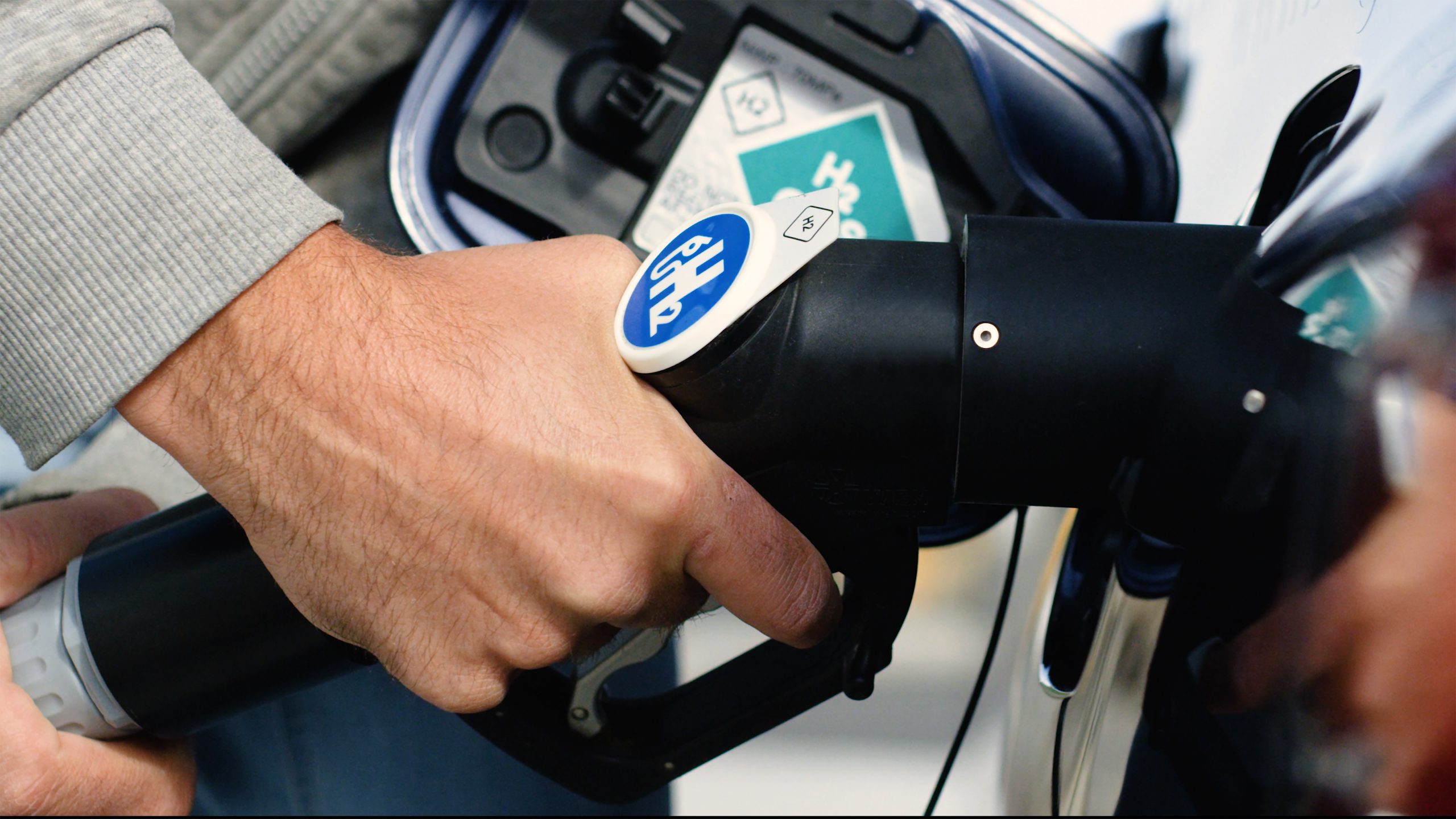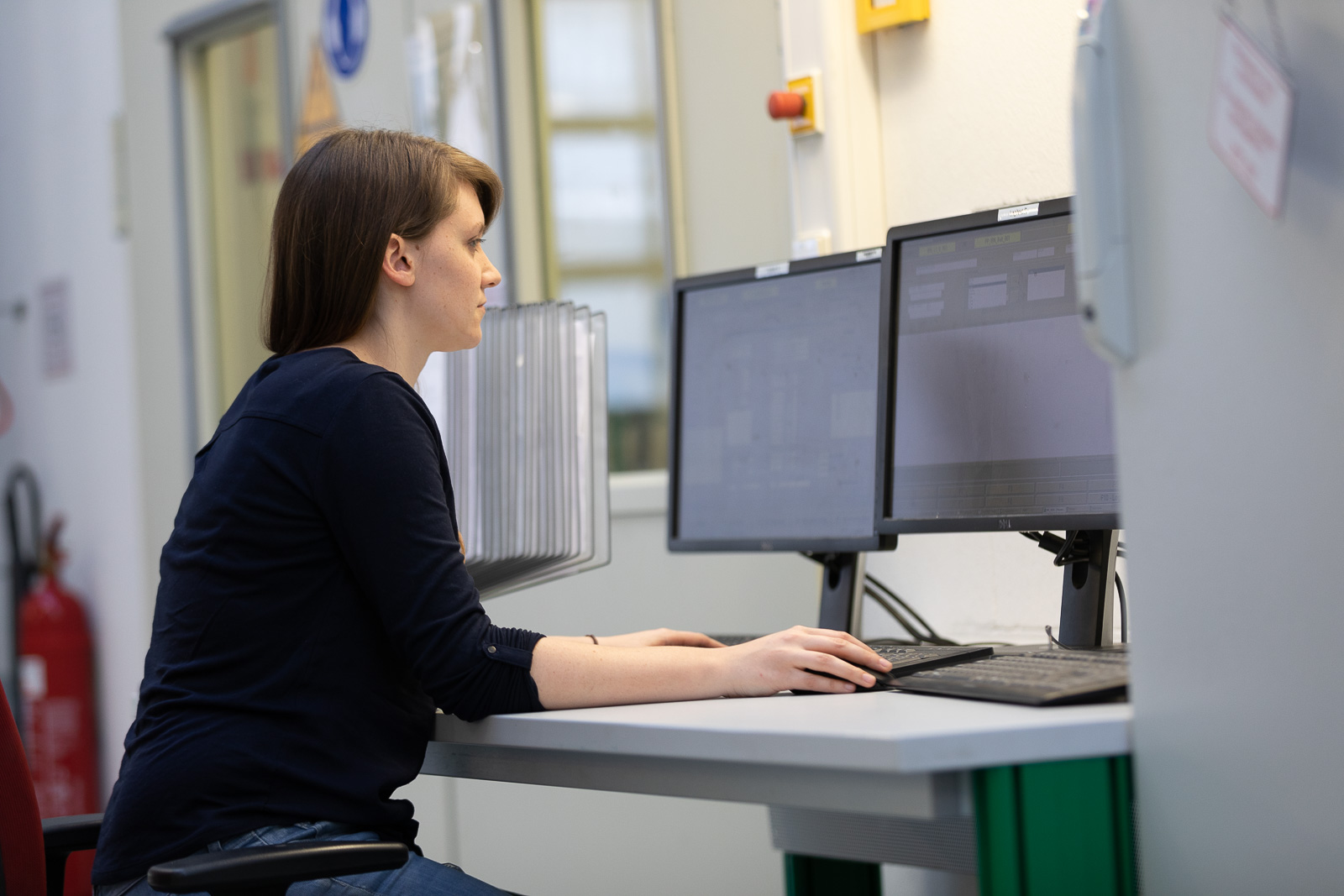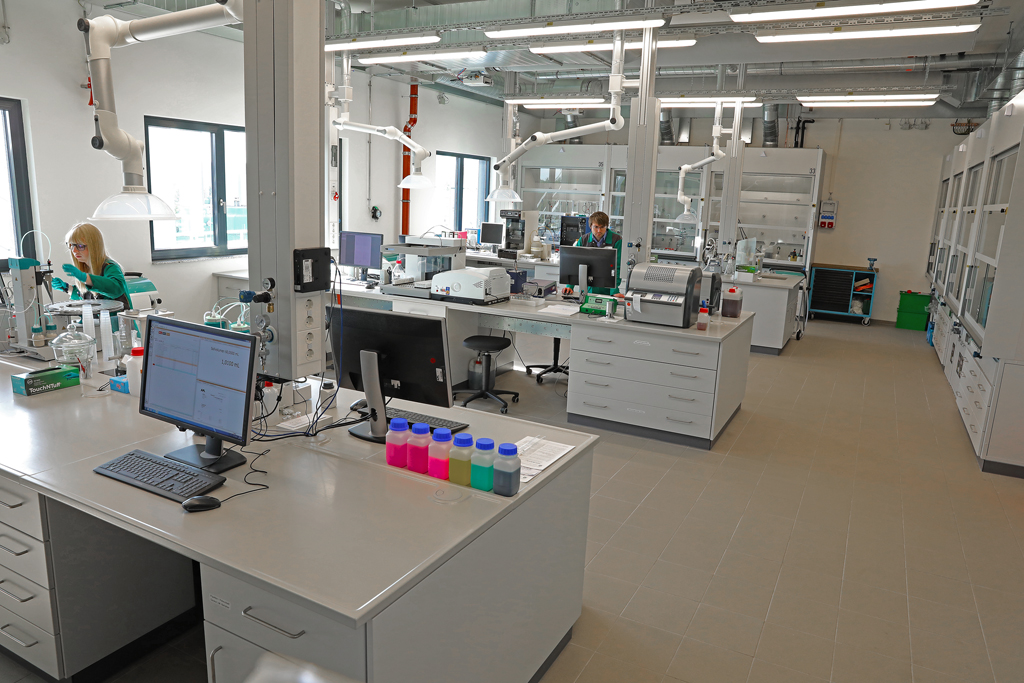// Fuel Cell Drives
The Future of Mobility Starts Now!
The change in drive technology from fossil fuels towards sustainable and storable energy carriers such as hydrogen is constantly speeding up. The fuel cell is becoming more and more important as a drive technology of the future thanks to its highly efficient electrochemical reconversion from hydrogen into electric energy. It demonstrates its advantages particularly when it comes to high power at low weight, long operating times, long range, 24/7 operation with short refueling time and low fuel consumption in the real world.

The further development of fuel cell drives is therefore becoming increasingly important at APL. Central elements in this context are the development fields mentioned below.
Electrochemistry and Simulation
Essential for characterizing the fuel cell is a basic understanding of the electrochemical processes. This results in a constantly growing toolbox of simulation algorithms from the catalyst level to MEA, stack and fuel cell system simulation, which then is smoothly integrated into our proven drive and vehicle simulation environments.
Testing on MEA and stack level
The characterization of the operating behavior, key parameters and the resulting influences on the durability of fuel cells is usually done at MEA (Membrane Electrode Assembly) — or at (short-)stack level. For this purpose, the APL offers the possibility to carry out corresponding tests in 6 test benches under specifically variable climatic conditions (-40°C to +90°C) also in driving or accelerated stress cycles with and without dosing of gaseous pollutants, since 2022 in the first phase of the test field. A fully equipped chemistry laboratory with an area of more than 1000 m² for material and gas analysis offers all technical possibilities for the in-depth investigation of occurring phenomena.
Testing at fuel cell system level
The fuel cell system ensures that the stack is optimally supplied with media in terms of volume, pressure, temperature and moisture content at every operating point and especially over transient load changes. Due to the complexity of the control loops involved, the development and validation of all aspects of the operating strategy and their impact on performance and service life are of critical importance. Important sub-disciplines include freeze start-up, mapping of load gradients, hot and cold country operation and control of environmental influences. Since the beginning of 2023, the APL fuel cell test facility in its extended second phase will offer comprehensive testing options for fuel cell systems with an output of up to 300 kW.
Design and testing of system components
When designing and testing fuel cell system components, APL can draw on decades of experience in related fields of technology. Whether it’s an electrically driven turbocharger, DC/DC converter, membrane humidifier, jet pumps or anode recirculation — our specialists know our customers problems — and ensure that solutions are implemented as quickly as possible.
Environmental testing
APL already offers a proven range of established environmental tests for fuel cell systems in accordance with ECE R100. These include test disciplines such as shaker, dust and water tightness, salt spraying, temperature cycling, thermal shock and plunge pools.
Further Informationen
Article: Requirements for Operating Materials Applied in Hybrid Powertrains
März 2020
Related Topics:

Testing of Electrified Drives

Chemical and Physical Laboratory
// Locations
Headquarters Landau
APL Automobil-Prüftechnik
Landau GmbH
Am Hölzel 11
76829 Landau
// Wolfsburg
APL Automobil-Prüftechnik
Landau GmbH
Gustav-Hertz-Straße 10
38448 Wolfsburg
// Bietigheim-Bissingen
APL Automobil-Prüftechnik
Landau GmbH
Robert-Bosch-Straße 12
74321 Bietigheim-Bissingen
// APL Group
@2022 APL Automobil-Prüftechnik Landau GmbH | Imprint | Privacy policy





